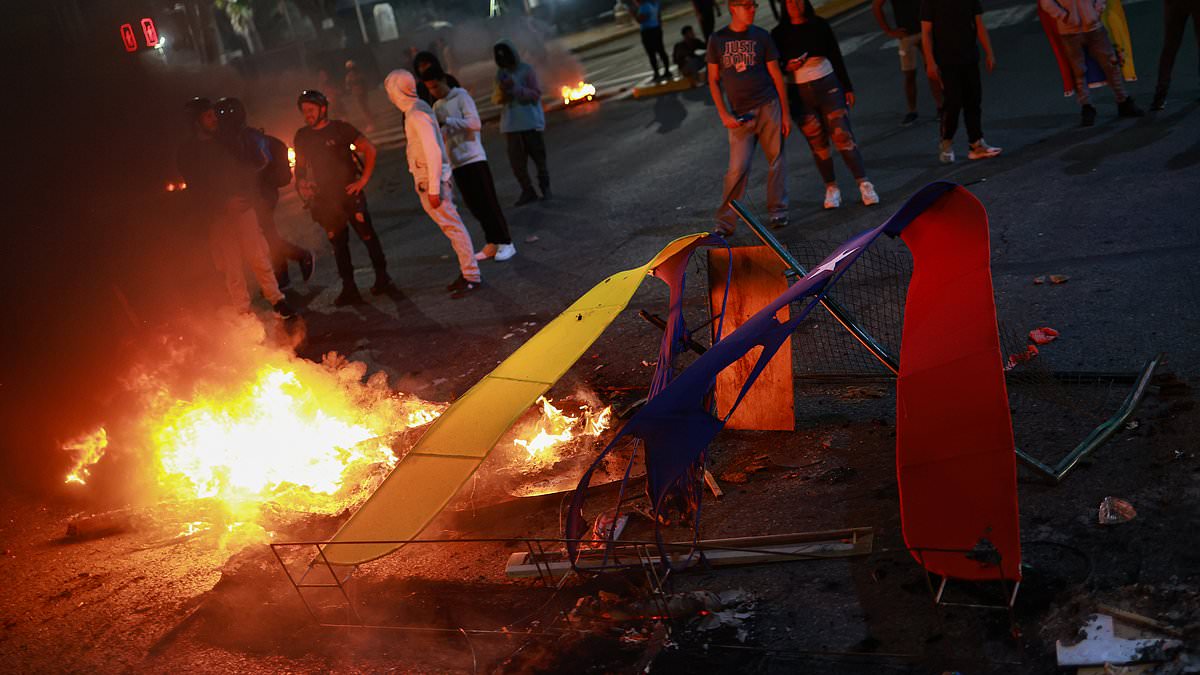The United States has dramatically recognized opposition leader Edmundo Gonzalez as Venezuela’s legitimate president-elect after a controversial election against President Nicolas Maduro.
Secretary of State Antony Blinken announced the decision on social media, declaring that Gonzalez won the July 28 election.
‘The Venezuelan people spoke resoundingly on July 28 and made Edmundo Gonzalez the president-elect. Democracy demands respect for the will of the voters,’ he wrote on X.
This comes just months after President Maduro claimed to have won the July election, a controversial outcome that has been heavily disputed.
Venezuela’s National Electoral Council had hastily declared Maduro the winner just hours after polls closed
The opposition fought back, collecting tally sheets from a staggering 80 percent of electronic voting machines and publishing them online.
González and opposition leader Maria Corina Machado claim these records prove González won with nearly double Maduro’s votes.
Maduro claims the opposition’s receipts are ‘fraudulent’ while he remains in power in Caracas.

The United States has dramatically recognized opposition leader Edmundo Gonzalez (pictured) as Venezuela’s legitimate president-elect after a controversial

This comes just months after President Nicolas Maduro (pictured) claimed to have won the July election, a controversial outcome that has since been disputed

Secretary of State Antony Blinken announced the decision on social media, declaring that Gonzalez won the July 28 election
The announcement comes after González, 75, fled to Spain in September, claiming he was coerced into signing a letter recognizing Maduro’s election victory.
Read More
Maduro declared winner of Venezuela's presidential election as neighbours condemn 'fraud'

The Biden team’s intervention aimed to put pressure on Maduro, who has refused to acknowledge opposition claims of electoral fraud.
Venezuelan Foreign Affairs Minister Yvan Gil furiously denounced the move as ‘ridiculous,’ according to Bloomberg.
Gonzalez, currently in exile, plans to return for the January 10 inauguration.
In July, Venezuela was engulfed by violent riots after Gonzalez announced he had proof he won Sunday’s disputed election hours after President Nicolas Maduro claimed he’d secured a third term in power.
Thousands of enraged protesters flooded the streets of the capital and several other cities, chanting ‘Freedom, freedom!’ and ‘This government is going to fall!’ as they set fire to tires and organized barricades to block police vehicles.
Security forces fired tear gas and rubber bullets into the crowds but were forced to recoil from Molotov cocktails and rocks hurled by the oncoming demonstrators, many of whom carried Venezuelan flags.

In July, Venezuela was engulfed by violent riots after Gonzalez announced he had proof he won Sunday’s disputed election hours after President Nicolas Maduro claimed he’d secured a third term in power (Pictured: A structure of the Bolivarian National Police (PNB) set on fire during protests against the results of the presidential elections in Caracas, Venezuela, July 29)

Demonstrators burn rubber and objects during a protest against the reelection of Venezuelan President Nicolas Maduro for the 3rd term one day after the Venezuelan presidential elections in Caracas, Venezuela on July 29, 2024
Some ripped Maduro campaign posters from street posts and burned them.
Around the country at least two statues of Hugo Chavez, the late socialist icon who led the country for more than a decade and handpicked Maduro as his successor, were knocked down by protesters.
At least one person was killed amid the protests and 46 more were arrested, according to rights group Foro Penal, which specializes in political prisoner issues.
